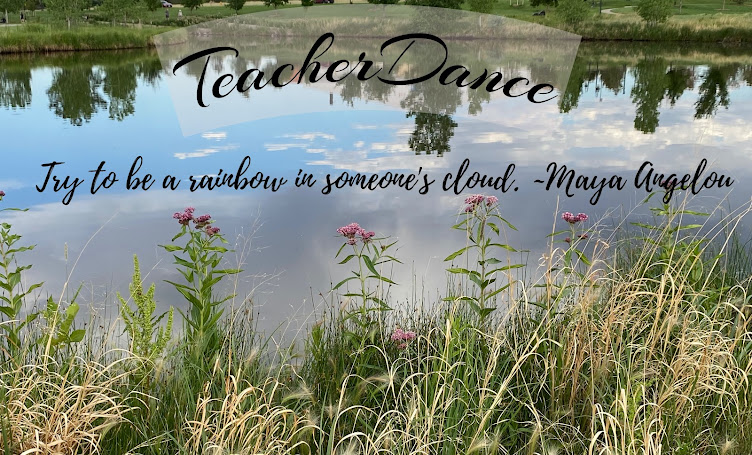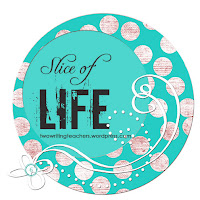The March Slice of Life Challenge- 30 of 31 Thank you Ruth and Stacey, at Two Writing Teachers, for hosting such a terrific month!
Tweet at #Slice2013
I also participate
in a reading challenge offered by Myra, Fats and Iphigene at the wonderful Gathering
Books blog. We pledge to read
a certain number of books for children that have won awards. It can be any kind of book.
I just finished Bomb by Steve
Sheinkin, The Race to Build—and steal—the world’ most dangerout weapon. It was chosen to receive a Newbery honor
medal for the 2012 year, along with the The YALSA Award for Excellence in
Nonfiction, the Sibert Medal for nonfiction and was a National Book
Award Finalist.
I’ve been
waiting to read Bomb for a while.
First, I had to find a copy, then I had others I needed to read first
because of teaching some book groups.
I’ve read other books about the creation of the atom bomb, like Richard
Feynmann’s Surely You’re Joking, Mr. Feynmann, but never about the
actual race and the behind-the-scenes intrigue that occurred. I don’t know how you feel about our dropping
of the atom bomb in 1945, but the facts given by Sheinkin indicate that we
needed to do it, and needed to show that we had this terrible weapon to force
the Japanese to surrender.
The
story begins with a scientist named Otto Hahn, who through an unintended
experiment with uranium, showed something thought to be impossible when placed
next to an element that was radioactive (with unstable nuclei). Through his work, he, with other physicists
confirming, discovered that uranium atoms, with the help of speeding neutrons,
split, and with an unbelievable force.
Because of this discovery, physicists all over the world were excited,
and wondering what this new discovery, the fission of atoms, could mean. Of course, we here in the 21st
Century know what it meant, that the Allies won World War II, that the arms
race began, particularly between the US and the USSR, keeping us in a scary
time called the Cold War. And it also meant
unbelievable destruction of two cities, a sense of regret in those who worked
so hard to create the bomb, that the world had changed forever with the
realization of the possibility of utter destruction. I was a teenager in the cold war, and while I
don’t remember the real feelings, I have found poems that I wrote during that
time and they are filled with fear of the world coming to an end, of being
bombed, of the scary thought that I might not live to adulthood.
The
book’s story chronicles the race in both its glory and its dark side. Its focus
is on Robert Oppenheimer, the leader of the scientists at the secret labs at
Los Alamos, New Mexico. It weaves in and
out, chapter by chapter, from Oppenheimer’s decisions, to FBI investigations,
spies from the Soviet Union gathering information, physicists working with
Oppenheimer who gave away secrets, emphasizing the tension, the politics, the
sheer willpower that was spent to get it right, and win the war.
The
dividers from chapter to chapter show labeled photos of the prominent people,
place and events in the story. There is
an extensive bibliography, quotation notes and a good index. Sheinkin gave the information a narrative that
was interesting, but not emotional. It
was a highly interesting book to me because my father, a pilot, was killed
just two months before the bombs were dropped, shot down in the Philippines. In my youth, I wished that they had



I've seen the book around, and heard a bit about it, and now you put it right back on my radar screen.
ReplyDeleteThanks
Kevin
Thanks, Kevin. I thought it very good! Hope you enjoy it!
DeleteI read this and was captivated by all the intrigue and drama that took place in the creation of the bomb. It put faces on the people in who were a part of this operation and the final dropping of the bomb. It was very thought provoking to me.
ReplyDeleteI agree, Elsie. I admired the research that the author did, thus adding the interesting details/stories occurring everywhere! Thank you!
DeleteI haven't read the book but it would be interesting to read deper about that time in history. So much changed after it was created.
ReplyDeleteYes, it certainly did. The author spoke of that in the book. Thanks Beverley!
DeleteI'm sorry for the loss of your father; it's easy to see why you need to read and process through this information (beyond general interest). It feels like we NEED to have something to help us keep perspective on the dangers of the world and to pay attention to what WMD (and all wars) do to life on earth.
ReplyDeleteThank you, Chris. It is a different perspective, but there are so many terrible things that have happened in wars since that time. I am continually sorrowful that we cannot seem to solve conflicts without weapons.
DeleteI found the history of this time fascinating. I read it shortly after reading the graphic novel biography of Feynman. Interesting pairing.
ReplyDeleteI had the Feynman book, & need to get it again. I just ran out of time so had to return it. I wanted to compare it to the earlier one written by him. Thanks Maria.
DeleteI grew up when Estonian was part of Soviet Union. The threat of bombs was there, but as a child I wasn't afraid. I think that right now there are bombs in the hands of unpredictable leaders, that the scary future is more real. I'd like to read the book.
ReplyDeleteYes, I've been following the N. Korea talk, plus of course there is talk about other countries too. There was also talk of what the explosions of the weapons would do to the atmosphere. Argh-I wish we could get it right! Thanks, Terje!
DeleteSuch a complex time in history, Linda. I have had the chance to know and then to teach Japanese people who were in Hiroshima and Nagasaki when the bombs fell. So there is the other side, too - and all the suffering there. It all comes down to "man's inhumanity to man" ... and the endless cycle of suffering we perpetuate upon each other.
ReplyDeleteI understand, & have met some families whose relatives experienced the bomb, & have taught the book, Hiroshima. So sad to me that the threat continues. Just think, those kids you are teaching have never known anything but that we're at war! Thanks Tara.
DeleteSounds fascinating! I just found out (while helping him with History homework about WWII) that one of my Japanese students is from Nagasaki. I didn't know what to say when he said that -- I almost felt guilty just for being an American! I understand the way you felt about your father -- I'm sure I would have had the same thoughts. (In fact, right when you said that it was only 2 months before, the "oh, if only..." thought jumped into my head.) War is just a horrible thing from all angles.
ReplyDeleteIt is, no matter what side you're on. The book, while clear that the bombs were needed & you'll have to read it to see what they said, it was also clear how awful the possibility of the bombs continuing was. I wish everyone could just talk, shout maybe, but talk! Guess that's my pie in the sky! thanks Jennifer!
DeleteThis is on our Illinois young readers' choice award book list for next year. Therefore, it is in my pile to read. The personal connections and insight you give to the book have caused me to move it up in my stack.
ReplyDeleteI imagine some of your students would enjoy it although it is rough at the end because of the results of the dropping of the bomb. Have you read Hiroshima? It's devastating. Thanks Christy!
DeleteI've been wanting to read this book for a while. Reading your review made me really want to get hold of it soon!
ReplyDeleteI finally did it. I had been wanting to also. Hope you like it Carol! Happy Easter!
Delete